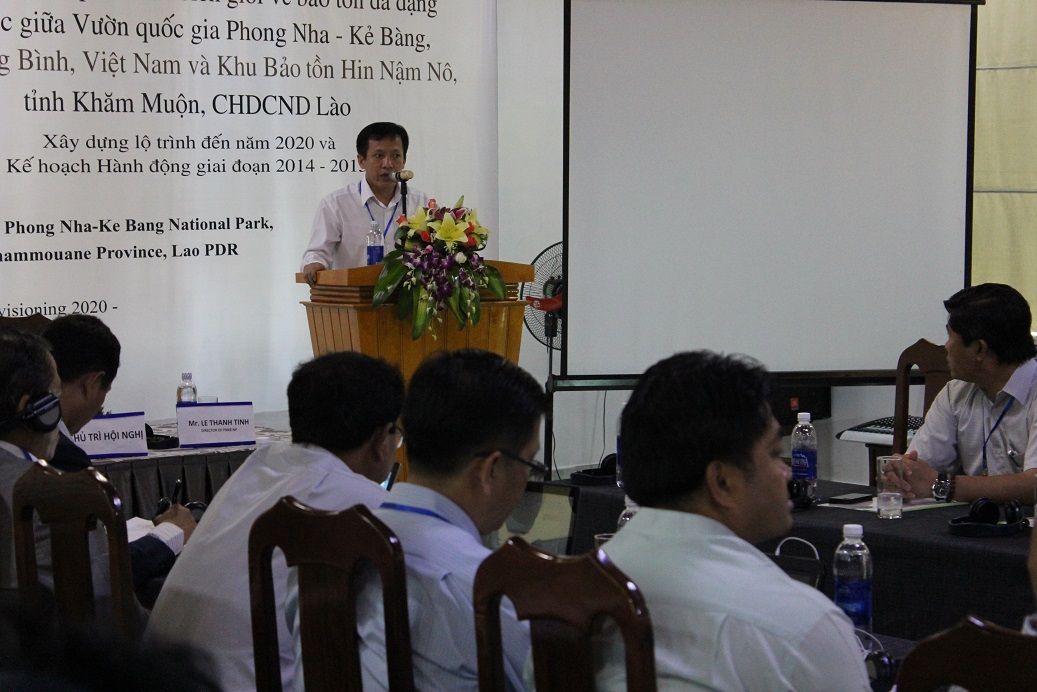On June 25th and 26th , the management board of Phong Nha – Ke Bang National Park recently hosted a two-day Transboundary Cooperation Workshop between Phong Nha – Ke Bang National Park (Vietnam) and Hin Nam No (Laos).
Approximately 80 attendees attended the workshop, including delegates from the Hin Nam No National Park and Khammouane Provincial Government, delegates from Phong Nha – Ke Bang National Park and the Quang Binh Provincial Government. Other atendees included development delegates from the Germany Embassy, International NGO’s and Vietnam UNESCO.
The workshop was facilitated by Deutsche Gesellschaftfür Internationale Zusammenarbeit (GIZ) for the strengthening of Transboundary Cooperation for biodiversity conservation. It bring together relevant stakeholders of the two protected areas: Hin Nam No NPA and PNKB NP, two provinces: Khammouane and Quang Binh, include provincial and local authorities, technical agencies, notably law enforcement agencies in forest protection as well as representatives of local communities, representatives of the agencies at national level in charge of the management of protected areas in Vietnam and Laos and relevant international organizations to:
- To review the lessons learnt so far for transboundary cooperation between PNKB NP and Hin Nam No NPA
- To share international practical experiences in transboundary conservation
- To discuss and develop the vision, roadmap and action plan for strengthening the transboundary cooperation in biodiversity conservation between PNKB NP and HNN NPA from 2014 – 2020 and respective (realistic and focused) action plan from 2014 – 2015, with detailed plan for 2014.
- To discuss the proposed multi-stakeholder dialogue approach strengthening the transboundary cooperation in biodiversity conservation between PNKB NP and HNN NPA: Joint Secretariat
The meeting offered a rare opportunity for the neighbouring National Parks to exchange ideas, challenges, culture, and friendship. Most importantly is showed that work will continue across the border to protect these world-class biodiversity rich environments, and the hope for Transboundary conservation will prevail.
BBT







